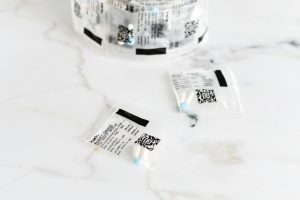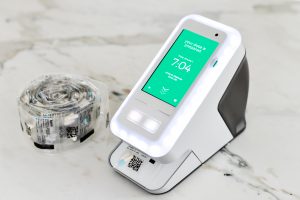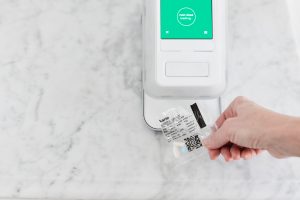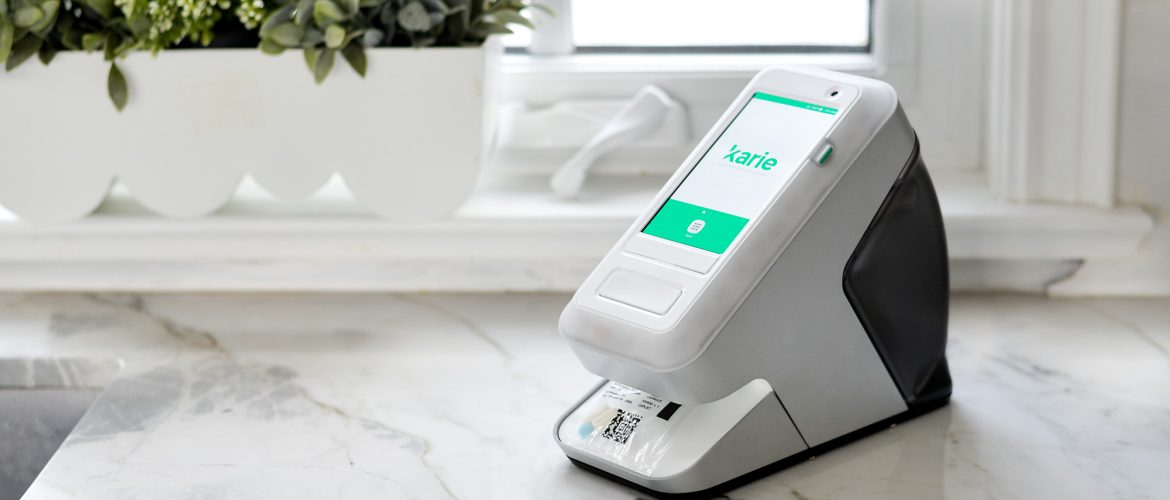Believe it or not, more than 20 per cent of nursing home admissions are linked to medication noncompliance. That means for every five seniors admitted to nursing homes, at least one is potentially there because of this issue. AceAge’s CEO Spencer Waugh wants to change that.

AceAge CEO Spencer Waugh
“I watched a family member end up in the hospital over and over again because they weren’t taking their medication properly,” says the Ontario-based entrepreneur. “It’s shocking how many people have similar stories. With our aging population, we simply don’t have enough beds in nursing homes and hospitals. This is a problem that needs to be solved.”
About seven years ago, Spencer started looking for a solution. “I did a market scan of existing solutions out there. I came across 400 different cellphone applications and all kinds of difficult-to-use calendar boxes. But nothing that was simple – nothing that was intuitive.”
Eventually, he stumbled upon a packaging format called multi-dose pouch packaging that many pharmacists already used. “I thought it was amazing because there’s a massive network of pharmacies that already dispense in that way. It very easily and simply pre-organizes the medication for the patient. And it has all the information on the packaging and when they’re supposed to take their medication.”

Multi-dose pouch packaging
He introduced the packaging to his family member in the hopes that it would prevent hospital visits. Sadly, they started to happen again less than a month later, prompting Spencer to realize he needed to tweak the process.
“What exists today are solutions that are designed to assist in the organizing and scheduling of medication. They’re based around, ‘If someone were to use this device in this way and schedule it this way, then they’ll take their medication properly.’ What we’ve done is we’ve entirely automated the process.”
How Karie works
Spencer’s vision for his device, called Karie, is as follows: it plugs into a wall and once it’s

Karie lights up to inform users that their dose is prepared.
installed, the person is alerted with both visual and auditory cues when they need to take their medication. “The device reads the information on the packaging and it automatically schedules when it should be dispensed. You just need to press a button when the device notifies you that it’s time to take your medication.”
If for some reason the user forgets to do so, a family member or caregiver is automatically notified that a dose was missed. “They can call right away and provide encouragement when it’s needed the most,” adds Spencer.
The cartridge only needs to be re-filled every two months for people taking their medication once a day. That timeframe changes to two weeks if they’re taking their medication four times daily.
“What typically happens is if someone’s taking their medication four times a day, then they’re already getting it filled every two weeks,” Spencer explains. “We chose this cartridge size very intentionally to meet the needs of our end users.”
CABHI’s role

Picture of a user taking their medication from Karie.
Spencer says his start-up – which is based out of Guelph, Ont. – is tapped into the province’s innovation network. Once he heard about the Centre for Aging + Brain Health Innovation, led by Baycrest Health Sciences, the entrepreneur realized CABHI could help support him in taking his vision to the next level. He applied for the Industry Innovation Partnership program (I2P2), which helps accelerate the testing and evaluation of products and services that address the needs of aging adults.
“We are very lucky to be in the I2P2 program,” says Spencer. “We’re ecstatic that this program is going to allow us to generate the scientific evidence to show that Karie will improve the quality of life for seniors.”
CABHI also helped bridge the collaboration between Spencer’s AceAge and two important trial sites. “We’re doing the study with rehab patients and early onset dementia patients with an in-home caregiver. Being in two different provinces, it’s allowing us to be Canada-wide out of the gate.”
These trials are vital because they’ll help AceAge attain the feedback it eagerly seeks. “As an early stage company, you have a lot riding on each of these early studies that you do.”
He adds: “With this study, we will be able to say how adherence improves when people take their medication using Karie. And from that, there’s a number of indicators that we’re going to measure to be able to show equity and value being brought to the healthcare system as a whole in a cost-effectiveness analysis.”
Some of those indicators include reducing ER visits and hospital admissions. “People, organizations and the healthcare system as a whole benefit from that,” says Spencer. “Because if someone’s taking their treatment properly, then the chances of an improved health outcome increase dramatically, and many ailments can be prevented.”
Most recently, AceAge signed an agreement with electronics manufacturer Urtech to produce the first batch of Karie devices. The product is expected to be brought to market this summer.


